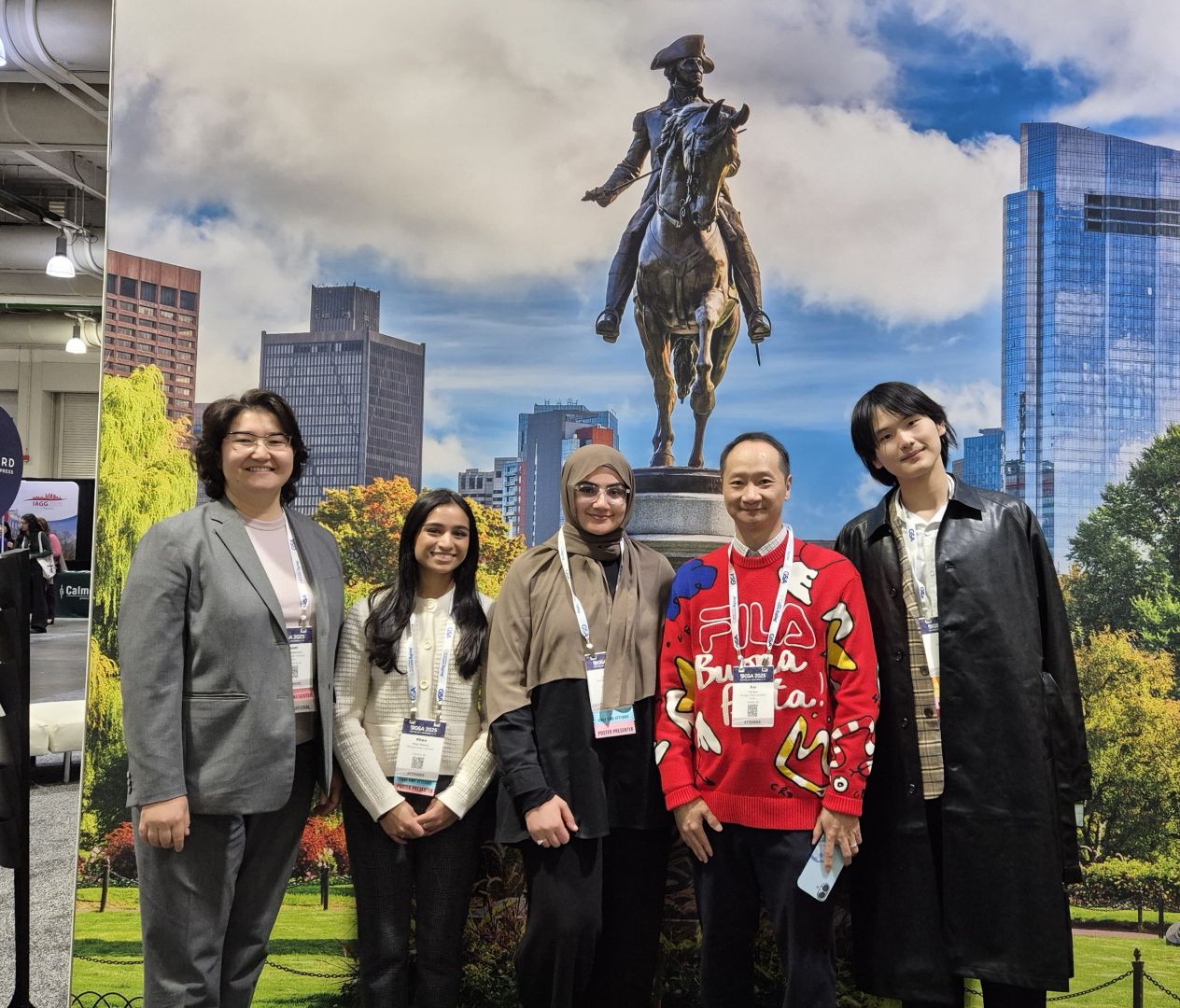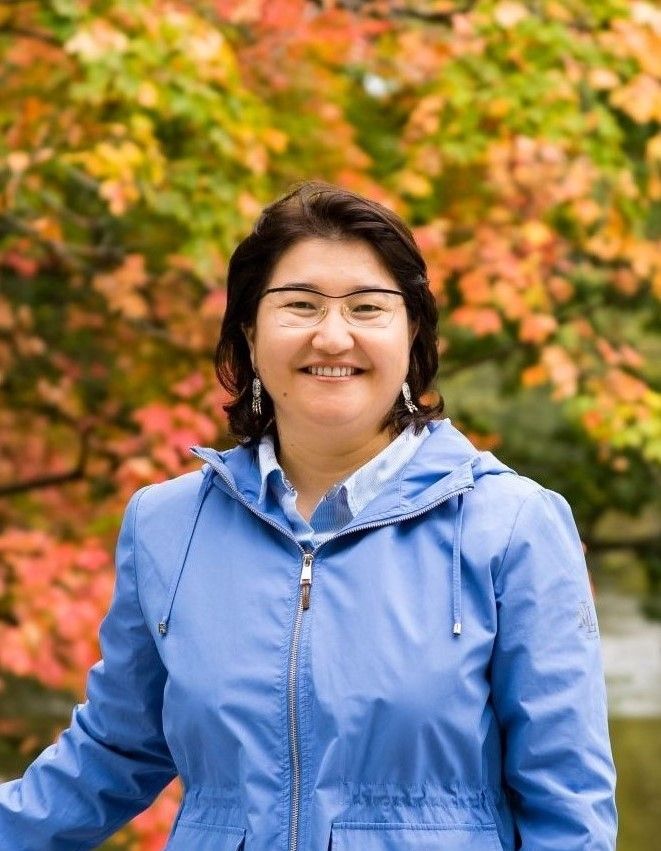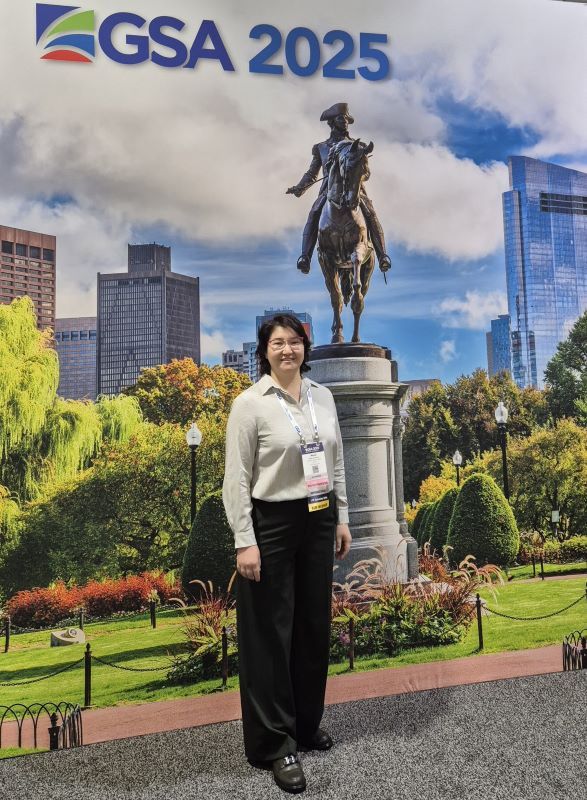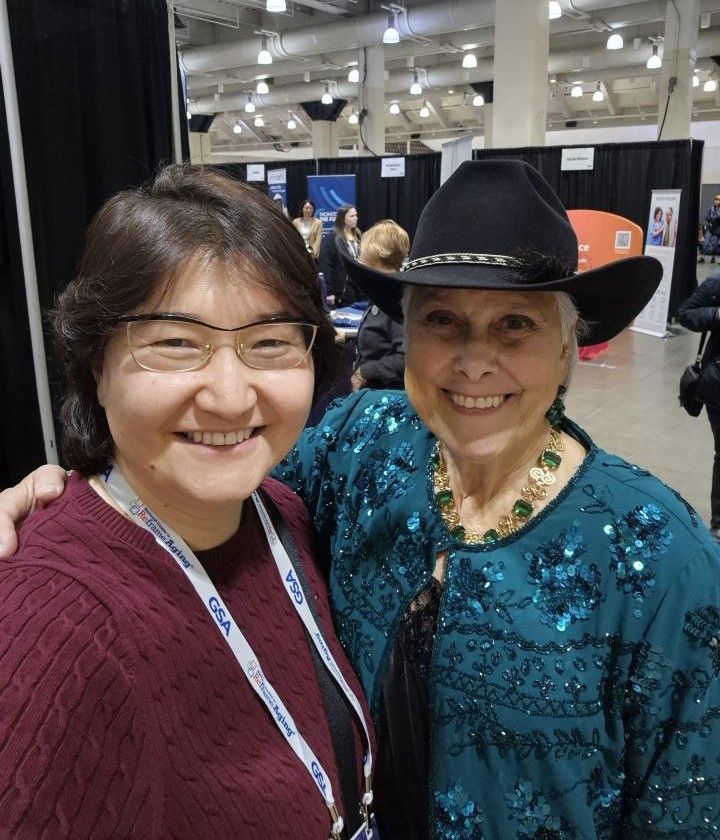

Dr. Assel Izekenova is an associate professor at Kenzhegali Sagadiyev University of International Business and a 2025 visiting scholar at Michigan State University through the Bolashak Program, hosted by the MSU Visiting International Professional Program. Dr. Izekenova works with faculty mentors Dr. Fei Sun in the School of Social Work and Dr. Samantha Caughlan in the College of Education. Dr. Izekenova's research focuses on aging well-being, in particular digital financial literacy for older adults. She has worked extensively with international organizations and the UN. In this article she shares in her own words her experiences representing MSU at the Gerontological Society of America (GSA) 2025 Annual Scientific Meeting in Boston.
From November 12–15, I had the privilege of attending the Gerontological Society of America (GSA-2025) Annual Scientific Meeting in Boston, an extraordinary gathering of more than 6,000 leading scholars, practitioners and policymakers in the field of aging. Founded in 1945, GSA remains the oldest and largest interdisciplinary organization dedicated to the study of aging, continuing to shape national and international conversations.

As a visiting scholar at Michigan State University’s College of Education and School of Social Work through the Bolashak 500 Scholars Program, this experience was deeply inspiring and professionally transformative. I am grateful to my mentor, Dr. Sun from the School of Social Work and to Dr. Xinyu Wu, Director of VIPP, whose support and funding from the VIPP endowment made my participation possible. Their encouragement and belief in the value of international scholarly exchange opened the door for this remarkable opportunity.
During the conference, I presented our joint study with Dr. Fei Sun, “Health-Related Quality of Life Among Older Adults in Kazakhstan During the Pandemic,” which is forthcoming in a special issue of the Innovation in Aging Journal (Oxford University Press). I also contributed to presentations from Dr. Sun’s research team on meaningful and community-focused projects at Michigan State University, including: A technology-based platform to support and empower rural dementia caregivers, developed through the Spartan Healthy Aging and Caregiving Office (SHACO) and ongoing work on approaches to prevent self-neglect among older adults. I was honored to be involved in these projects, which reflect MSU’s commitment to improving the lives of older adults through practical, research-informed solutions.

Another highlight of my experience was engaging with GSA leaders and colleagues, including GSA President Marilyn R. Gugliucci, M.A., Ph.D. Her emphasis on the importance of mentorship deeply resonated with me and reinforced the value of supportive academic relationships in shaping meaningful careers.
My key takeaway from GSA 2025 is the clear need for every scholar, especially those who wish to grow, remain connected to emerging knowledge, and contribute meaningfully to their field, to be part of a strong professional association or scholarly community. Such networks broaden perspectives, create collaborations, and help us see the future direction of our research areas. I am honored to have represented Kazakhstan, Michigan State University, and VIPP at this important event.